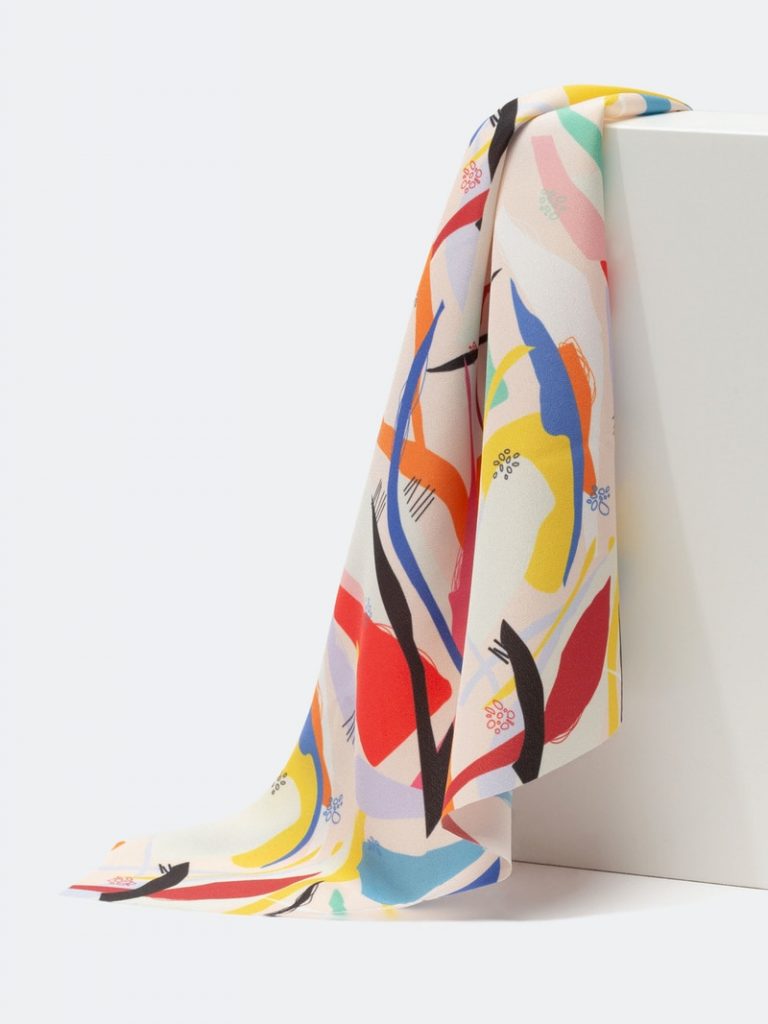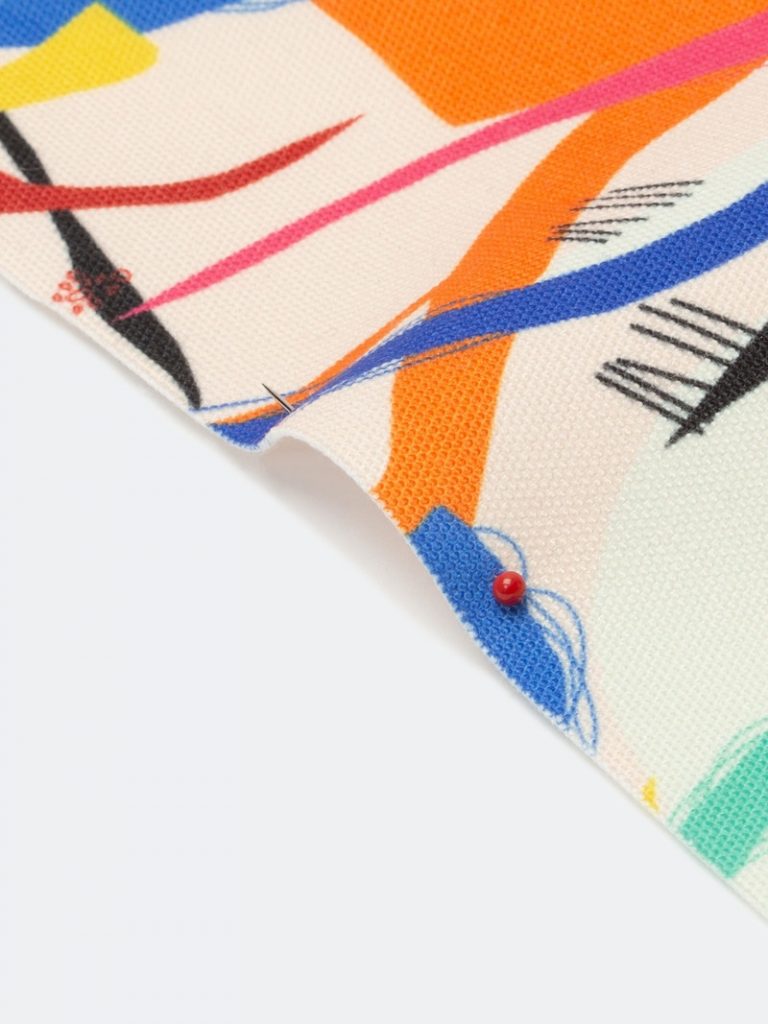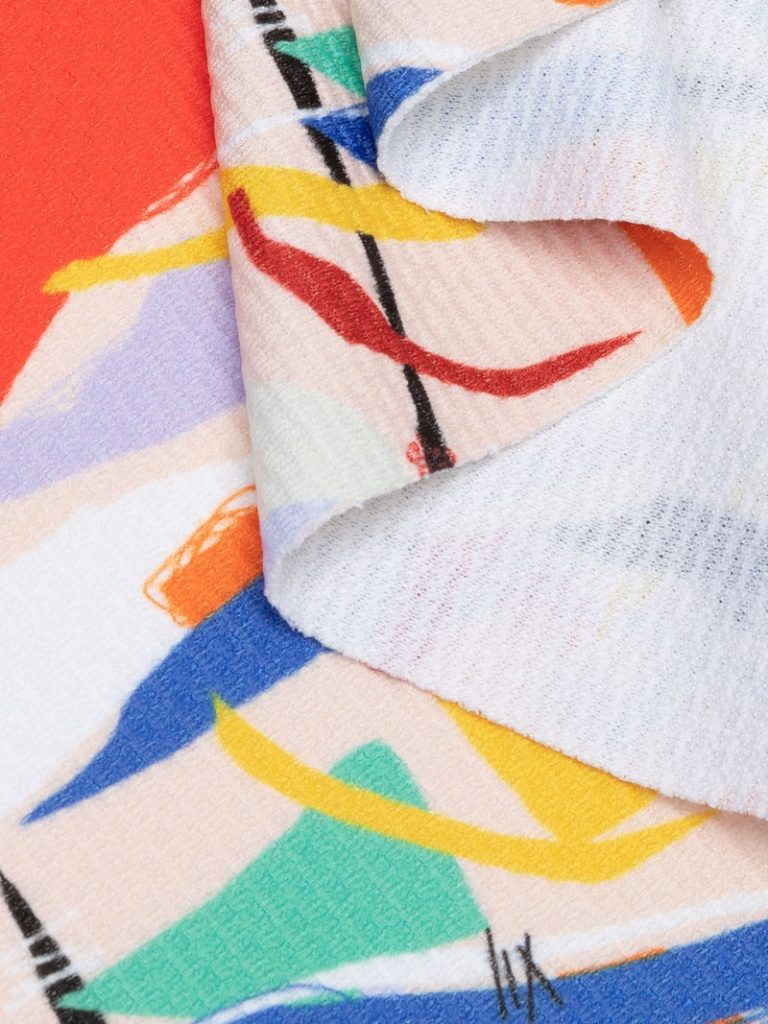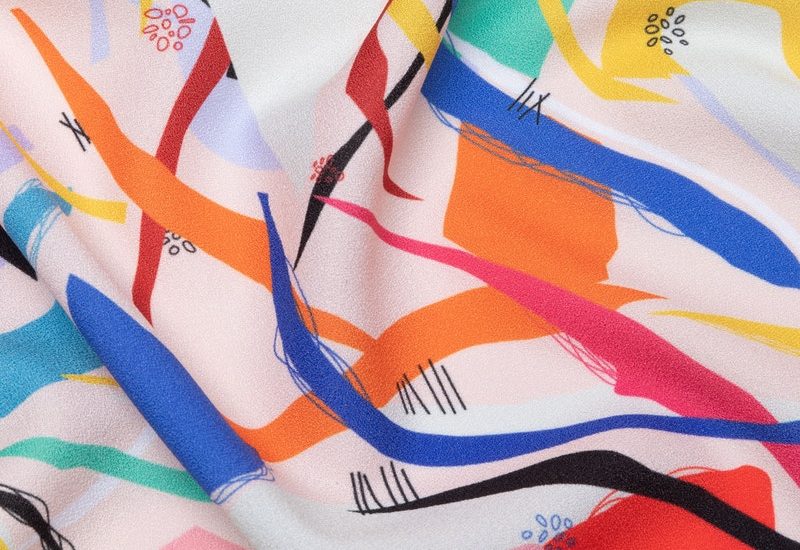When you hear people talking about all things fabric you will hear the words “woven” and “knitted” thrown around quite often. This may have you wondering what is woven fabric? And what is the difference between knit fabric? Well, we are here to explain to you not only what they are, but how they both differ! We are even giving you a few examples of both materials to help you out.
So if you want to know the difference between what is woven fabric and what is knit fabric, then you are in the right place!
What Is Woven Fabric?
Fabrics either fall into the category of knit or woven. Both types differ completely from how they are produced and the qualities they hold. By distinguishing the fabric you wish to utilise then you are able to properly handle and care for it, making the identification process extremely important.
So what is woven fabric and what qualities does it hold?
Look:
If you look closely at the material you will see that the fibres are weaved in a crisscross form. A great way to visualise it is to think of the classic woven basket. Two sets of yarn are interlaced at right angles. The yarn that is horizontal (from left to right) is referred to as the weft. The yarn that is vertical (top to bottom) is referred to as the warp.
Stretch:
Woven fabrics are typically not very stretchy. When pulled it may stretch slightly along the warp, but will hardly stretch along the weft. So if you are after a stretchy material a woven fabric is probably not the best choice for you.
Wrinkle:
Due to their nature, woven fabrics do crease quite easily. This is a simple way of determining whether or not your material is woven or knitted.
Shrinkage:
Woven fabric is not prone to shrinking. However, if you do not follow the care instructions properly, and use extremely hot water when washing, you may experience some slight shrinkage.
Fraying:
Woven fabrics are susceptible to fraying. That is why it is best to finish the fabric with a serger or zigzag stitch in order to prevent fraying.

Examples Of Woven Fabric
To help you get a better understanding of woven fabrics and what they are here are a few that you have likely been in contact with or utilised not knowing that they are in fact a woven material.
Canvas:
Canvas is a heavy, plain weave fabric that is extremely strong and durable. It is an industrial fabric but is very popular in industrial workwear as well as tents.
Chino:
The classic preppy trousers are in fact a woven material! A medium weight tight twill weave that has a slight shine to it. Perfect for uniforms and that “smart casual” look.
Crepe:
With a slightly crinkled look, crepe is a popular and light summery fabric.
Denim:
The wardrobe staple year in and year out is in fact woven. A medium-weight twill weave, with a warp that is usually indigo and a weft that is white.
Muslin:
A super affordable woven fabric. Muslin is a stiff unfinished plain weave fabric. It is commonly used by designers in order to create garments for testing patterns, before producing the final results using a more costly fabric.

What Are Knitted Fabrics?
When trying to properly understand Woven fabrics it can be useful to get familiar with knitted fabrics in order to effectively differentiate between the two.
Knitted fabrics are made from one or more long interconnecting and looping yarns. This makes knitted fabrics especially stretchy and extremely popular in casual garments.
Look:
If you look closely at the material and it appears to have rows upon rows of narrow braids or loops, then it is a knitted fabric.
Stretch:
Knitted fabrics are always stretchier, especially along the weft of the fabric. So do a stretch test to determine if it is knitted.
Wrinkle:
Knitted fabrics are less prone to wrinkling than woven fabrics. Another great way to test your fabric is by scrunching it. When scrunched up woven fabrics maintain some sort of shape, whereas knit fabrics usually collapse back down.
Shrinkage:
They are more prone to shrinking, in comparison to woven fabrics, so make sure care is taken when washing!
Fraying:
Knitted fabrics do not fray, so this is yet another simple way to distinguish what fabric type you possess.

Examples of Knitted Fabrics
Now let us distinguish the difference further by exploring a few examples of knitted fabrics.
Jersey:
A single knit fabric made from natural or synthetic fibres. They are versatile, wrinkle-resistant, durable and extremely soft. It is very popular in clothing such as t-shirts.
Tricot:
A lightweight knit made of synthetic fibres. It can be knitted quite sheer and light as well as more opaque and medium weight. This makes it popular when creating lingerie.
Rib Knit:
This has a raised vertical texture making it easy to identify. It is more stretchy crosswise and lies flat on one side. Commonly used for necklines, especially turtlenecks.
Fleece Knit:
A durable, stretchy, and warm fabric with a thick, deep pile. It dries quickly making it suitable for activewear.
Interlock Knit:
Similar to rib knit, this fabric is extremely versatile. Heavier and less stretchy than the jersey, both sides are smooth so it doesn’t matter which side you choose to face outwards.
Shop Fabrics
Now you know the difference and can hopefully confidently answer the question: what is woven fabric, why not select and print your very own unique fabrics? At Contrado you can select from our large range of woven and knitted fabrics to print your art onto. So select the perfect fabric for your new creation and we will print your unique designs and send them straight to your door. Click the banner to discover our bespoke fabrics, and CLICK HERE to order a fabric swatch pack!


